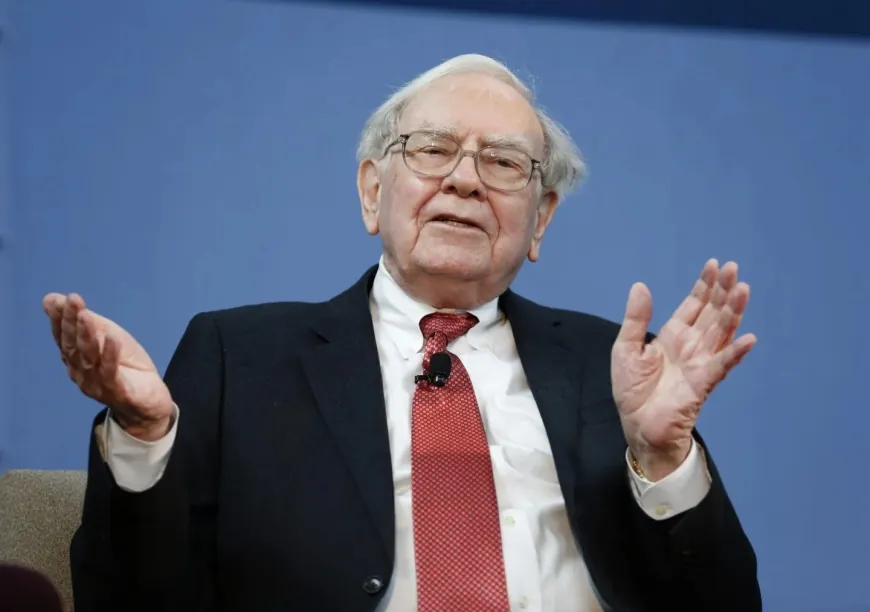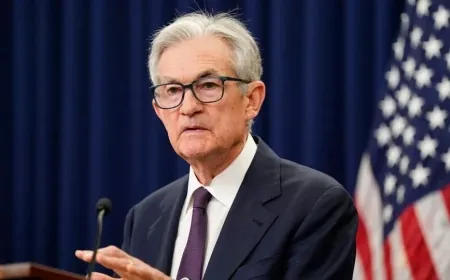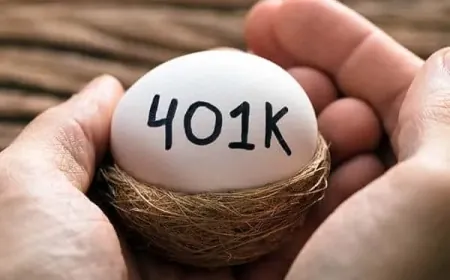Berkshire Hathaway Profit Jumps 17% Before Buffett Steps Down as CEO
Berkshire Hathaway reports a 17% profit rise to $30.8 billion. Warren Buffett will step down as CEO in January 2026, with Greg Abel taking over.

Key Highlights
- Profit Surge: Berkshire Hathaway posted $30.8 billion profit in Q3 2025 — a 17% rise from last year’s $26.3 billion.
- Operating Strength: Core operating earnings grew to $13.49 billion, driven by robust insurance results.
- Insurance Recovery: Underwriting profit reached $2.37 billion as claims dropped and premiums rose.
- Leadership Transition: Warren Buffett confirmed he will step down as CEO in January 2026 but stay as chairman.
- Next in Line: Greg Abel, Vice Chairman, will assume full CEO duties following Buffett’s transition.
- Record Cash Pile: Berkshire’s cash reserves hit a new record at $381.7 billion.
- Major Acquisition: The company completed a $9.7 billion deal for OxyChem, its largest purchase in recent years.
- Stock Valuation: No share buybacks this quarter; Buffett views current valuation as still high.
- Utility Pressure: Utility profits declined nearly 9% to $1.49 billion due to rising costs.
- Stock Movement: Berkshire’s Class A shares closed at $715,740, down from this year’s peak of $812,855.
Berkshire Hathaway posted a solid profit gain in the third quarter as its insurance business rebounded from last year’s storm losses and investment income improved. The results come just months before Warren Buffett hands over the chief executive’s role he has held for nearly six decades.
The company reported earnings of $30.8 billion, or $21,413 per Class A share, up from $26.3 billion, or $18,272 per share, a year earlier. Operating profit — which reflects results from Berkshire’s many subsidiaries — rose to $13.5 billionfrom $10.1 billion a year ago.
Insurance Turnaround and Calm Storm Season
A quieter hurricane season helped Berkshire’s insurers deliver stronger results. Insurance-underwriting profit climbed to $2.37 billion, about $1.6 billion higher than last year, when major storms hurt results. The company also booked $331 million in currency gains on overseas debt, compared with a $1.1 billion loss a year earlier.
Record Cash and a Major Deal
Even after spending $9.7 billion to buy Occidental Petroleum’s chemical unit OxyChem, Berkshire’s cash hoard reached a record $381.7 billion at the end of September. The firm has not repurchased any of its own shares for five straight quarters, signaling Buffett still sees limited bargains in the market.
Change at the Top
Buffett, who turns 95, will step down as chief executive in January. Vice-Chair Greg Abel, who oversees Berkshire’s non-insurance businesses, will take the top job. Buffett will stay on as chairman and continue to shape investment decisions.
Berkshire’s Class A shares ended the quarter at $715,740, below the record $812,855 reached in May, when Buffett told shareholders of his plan to pass leadership to Abel.
Mixed Business Performance
Profits at Berkshire’s utilities dropped about 9 percent to $1.49 billion, hurt by higher costs and lower demand. Its railroad, manufacturing, and retail businesses reported steady results.
Berkshire continues to keep its communications minimal, releasing results on Saturdays and avoiding the earnings calls that most public companies hold.
End of an Era
Buffett’s move to step back marks a turning point for one of the most closely watched companies in the world. Since taking control of Berkshire in 1965, he has turned it from a textile maker into a sprawling enterprise that owns Geico, BNSF Railway, and major stakes in Apple and Coca-Cola.
With Greg Abel’s promotion taking effect in January, Berkshire begins a new phase — still flush with cash, still profitable, and still shaped by Buffett’s approach to investing quietly and thinking long-term.
Also Read: Warren Buffett Donates Record $6 Billion in Berkshire Shares — Biggest Gift of His Lifetime






























































